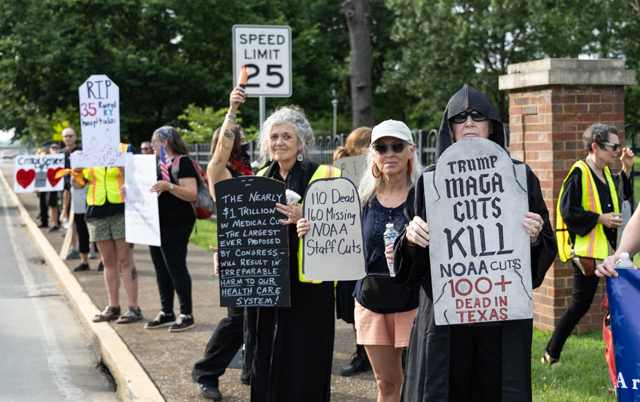Time for state to OK medical marijuana
Published 1:00 am Saturday, January 12, 2019
Two years ago, 125 of Kentucky’s 138 lawmakers supported, and Gov. Matt Bevin signed, a “right to try” bill giving terminally ill patients access to unproven, experimental drugs that lack Food and Drug Administration approval.
Last year, Congress enacted “right to try,” and President Donald Trump enthusiastically signed the law that the White House said “returns treatment decisions back to patients.”
Trending
It’s hypocritical then that many of the same officials, in Frankfort and Washington, still want to deny a treatment to patients who say it’s the most effective relief for their chronic pain, PTSD and other symptoms – a substance that has been used medicinally for millennia and produces none of the tragic side-effects that FDA-approved prescription opiates have inflicted on Americans.
The U.S. Drug Enforcement Administration, which insists that marijuana has no medicinal value and is as dangerous as heroin, also failed to protect the public from the over-prescription and misuse of highly addictive (and highly profitable) prescription painkillers.
So, excuse us if we put more stock in what patients say than in discredited “reefer madness” warnings from those who would make criminals of Eric Crawford of Mason County and many other Kentuckians who say they find greater relief in illegal cannabis than in the legal treatments they have tried.
As the Herald-Leader’s Jack Brammer reports, Crawford, whose spinal cord was broken in an auto accident in 1994, leaving him wheelchair bound, is part of the advocacy group Kentuckians for Medical Marijuana, which will again be seeking legalization and regulation of medical marijuana in the newly-convened Kentucky legislature.
Thirty-three states – including Ohio, West Virginia, Illinois and Missouri – plus the District of Columbia have legalized marijuana in some form for medicinal use. Another 10 have legalized recreational marijuana.
A major hurdle in Kentucky is Senate President Robert Stivers, who demands scientific evidence of marijuana’s medical value. There are plenty such studies, including two published in March by the American Medical Association’s journal, JAMA Internal Medicine, that found a reduction in opioid prescriptions in states after they approved medical marijuana.
Trending
Hefi Wen, an assistant professor at the University of Kentucky College of Public Health and an author of one of the studies, says there is evidence “that marijuana is one of the potential alternatives to opioids for pain management” and “can be used at a relatively low rate of addiction and no rate of overdose death.”
In 2017, drug overdoses – the majority from opioids – killed 1,565 people in Kentucky. No one died from an overdose of marijuana, in 2017 or ever.
In a Catch 22, marijuana’s classification as a Schedule 1 controlled substance does block more extensive research into its potential, prompting the American Legion, a veterans group, to ask Trump to clear the way for more marijuana research. The American Legion, which cites substantial anecdotal evidence in the drug’s favor, is desperate to find better relief for military veterans suffering from PTSD. The suicide rate among vets is at an all-time high, an average 20 a day.
Kudos to Reps. Jason Nemes, R-Louisville, and Diane St. Onge, R-Lakeside Park, who plan to seek approval for medical marijuana. Lawmakers should embrace that effort – out of compassion for suffering Kentuckians and, as they did two years ago with “right to try,” to send a message to Washington.






